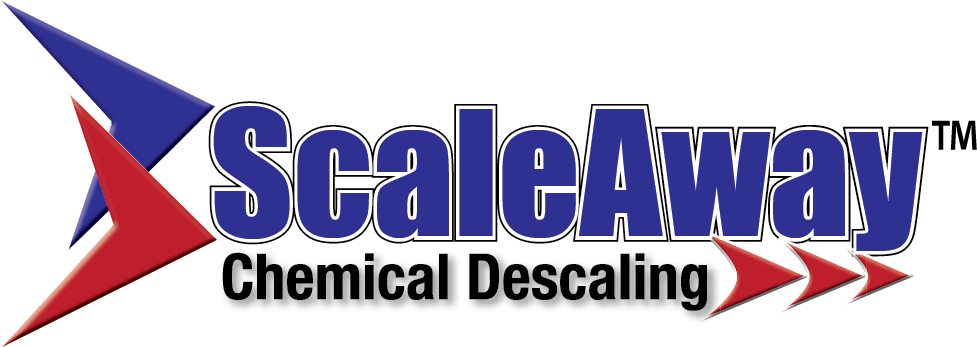A corrosion inhibitor is a chemical compound that, when added to a liquid, decreases the corrosion rate of a
material, typically a metal or an alloy.
The effectiveness, or corrosion inhibition efficiency, of a corrosion inhibitor is a function of many factors, including
but not limited to: fluid composition, quantity of water, and flow regime. If the correct inhibitor and quantity is
selected then it is possible to achieve high, 90-99%, efficiency.
Some of the mechanisms of its effect are formation of a passivation layer, that is a thin film on the surface of the
material that stops access of the corrosive substance to the metal, inhibiting either the oxidation or reduction part
of the redox corrosion system (anodic and cathodic inhibitors), or scavenging the dissolved oxygen.
The suitability of any given chemical for a task in hand depends on many factors, from the material of the system
they have to act in, to the nature of the substances they are added into and their operating temperature.
Anodic Inhibitors
An example of an anodic inhibitor is chromate which forms a passivation layer on aluminum and steel surfaces which
prevents the oxidation of the metal. Unfortunately, chromate is carcinogenic in humans; the toxicity of chromates
was featured in the film Erin Brockovich. Like hydrazine, the use of chromate to protect metal surfaces has been
limited; for instance it is banned from some products. ScaleAwayTM does not use Anodic Inhibitors
Nitrite and Nitrate are further anodic inhibitors. If anodic inhibitors are used at too low concentration, they
can actually aggravate pitting corrosion, as they form a non-uniform layer with local anodes.
Other types of anodic inhibitors are based on phosphates.
Another anodic inhibitor is pertechnetate. Unfortunately technetium is a radioactive isotope with a much higher
radioactivity than uranium and may be used only in very safe areas like nuclear reactors.
Cathodic inhibitors
An example of a cathodic inhibitor is zinc oxide, which retards the corrosion by inhibiting the reduction of water to
hydrogen gas. As every oxidation requires a reduction to occur at the same time it slows the oxidation of the metal.
As an alternative to the reduction of water to form hydrogen, oxygen or nitrate can be reduced. If oxidants such as
oxygen are excluded, the rate of the corrosion can be controlled by the rate of water reduction; this is the case in
a closed recirculating domestic central heating system, where the water in the radiators soon becomes anaerobic.
This is a very different situation to the corrosion in a car door where the water is aerobic. For instance, cars
suffer from the fact that water can enter the cavity inside the door and become trapped there. The fact that the
oxygen concentration is not uniform within the layer of water in the door then creates a differential aeration cell
leading to corrosion. A cathodic inhibitor would be of little use in such a situation as even after inhibiting the
reduction of water, the reduction of dioxygen would still be able to occur. A better method of preventing corrosion
in the car door would be to improve the design to prevent water being trapped in the door and to consider using an
anodic inhibitor such as phosphate.
One very good example of a cathodic inhibitor is a volatile amine present in steam; these are used in the boilers used to
drive turbines to protect the pipework in which the condensed water passes. Here the amine is moved by the steam in a
steam distillation to the remote pipework. The amine increases the pH thereby making proton reduction less favorable.
It is also possible that with correct choice, the amine can form a protective film on the steel surface and, at the
same time, act as an anodic inhibitor. An inhibitor that acts both in a cathodic and anodic manner is termed a mixed
inhibitor.
Oxygen scavengers
Hydrazine and ascorbic acid (vitamin C) both help reduce the rate of corrosion in boilers by removing the dissolved
oxygen from the water. However, as hydrazine is a highly toxic carcinogen, its use is being discouraged. Another
oxygen scavenger is sulphite. Some other antioxidants can be used as well. ScaleAwayTM does not use Hydrazine
Uses
Corrosion inhibitors are commonly added to coolants, fuels, hydraulic fluids, boiler water, engine oil, and many other
fluids used in industry.
Corrosion
Corrosion is the disintegration of an engineered material into its constituent atoms due to chemical reactions with
its surroundings. In other words, corrosion is the wearing away of metals due to a chemical reaction.
|
Contact us TODAY to purchase industrial grade descaling chemicals or to discuss a water management solution for your specific application!
|

|